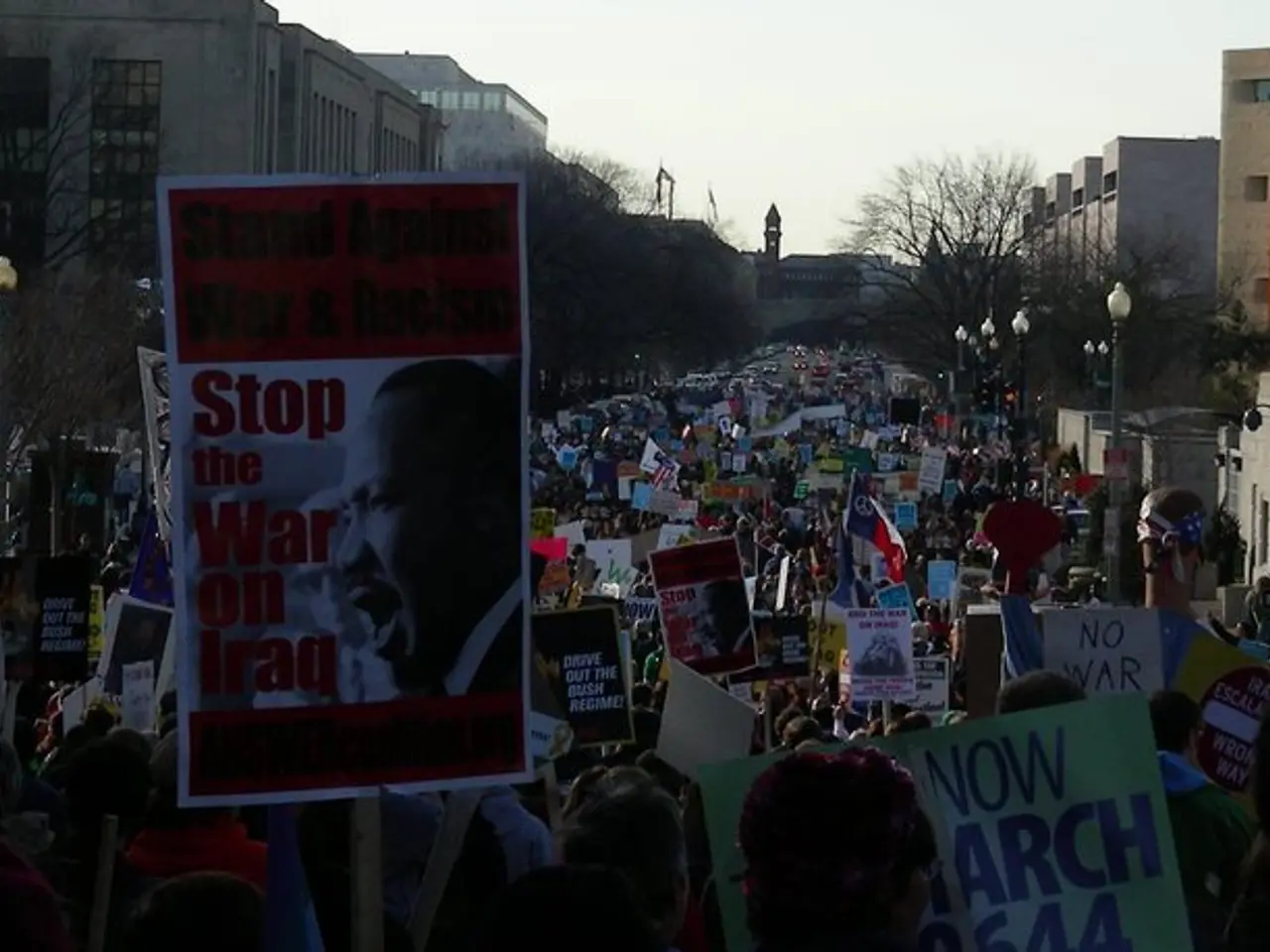Analysis: Assessing accusations of antisemitism in a neutral manner
In the vibrant and diverse city of New York, a troubling trend has emerged in recent times. The politicization of antisemitism, a documented and rising issue, is creating divisions and uncertainties within the Jewish community, impacting their overall safety and well-being.
Jewish residents accuse both the right and the left of enabling antisemitism in mainstream political discourse. This accusation comes as Jewish Governor Josh Shapiro's home was firebombed on Passover, and there have been two incidents of serious violence targeting Jews in the last two weeks.
The politicization of antisemitism is not limited to the streets of New York. Some political candidates, such as Zohran Mamdani, a leading NYC mayoral candidate, have faced accusations of condoning antisemitism due to their associations with pro-Palestinian activism and refusal to clearly condemn phrases perceived as inciting violence against Jews.
Mamdani, however, rejects these accusations, stating his commitment to universal human rights and distancing himself from antisemitism. Despite controversy, he holds a strong lead among Jewish voters who differentiate his political stance from accusations of antisemitism.
This politicization of antisemitism creates a climate of tension and fear among Jewish New Yorkers. It complicates efforts to address hate crimes and antisemitic incidents effectively, as political discourse sometimes shifts focus to broader Middle East politics rather than Jewish community safety.
Candidates like Mamdani have pledged significant increases in funding to combat hate crimes, which may reflect recognition of the seriousness of antisemitism even amid contentious political debates. However, the misuse of antisemitism can lead to less attention paid to real antisemitism, putting New York's Jews in greater danger.
The Jewish community is concerned and nervous about antisemitism. They are calling for clearer condemnations of language and rhetoric perceived as hateful or violent to protect the community and maintain trust in political leadership. The New York Jewish Agenda (NYJA) will also call out efforts to oversimplify or misconstrue the Jewish community's wide-ranging positions on antisemitism and Israel.
In maintaining a strong local government, politicians should focus on collective safety and effective collaboration with diverse colleagues in government. They should avoid fracturing coalitions "on our behalf." Maintaining a thriving labor force, keeping subways safe, and ensuring strong public health systems are all crucial, but so is ensuring the safety of all constituents, including Jews.
The politicization of antisemitism in NYC reflects broader national and international tensions intersecting with local politics in a city that is home to the largest Jewish population outside Israel. It is a complex issue that requires careful consideration and unified responses from all political leaders, candidates, and the community at large. Legitimate criticism of policies of the government of Israel is not inherently antisemitic, and it is essential to distinguish between constructive discourse and hate speech.
In summary, the politicization of antisemitism in NYC is a significant concern for the Jewish community. It creates divisions, fosters mistrust, and complicates unified responses to hate crimes. The situation underscores the need for clear, consistent, and strong condemnations of antisemitism in all its forms, and for politicians to focus on collective safety and effective collaboration in government.
- The local government of New York should focus on ensuring the safety of all constituents, including Jews, as part of maintaining a strong local government, particularly in light of the politicization of antisemitism that has emerged in recent times.
- Amidst the ongoing tensions and debates surrounding Middle East politics, it is crucial for political leaders and candidates to address hate crimes and antisemitic incidents effectively within the Jewish community, rather than allowing their focus to be diverted.
- The politicization of antisemitism is not only a concern in the streets of New York but also extends to the realm of policy and legislation, as political candidates face accusations of condoning antisemitism due to their associations and rhetoric.








